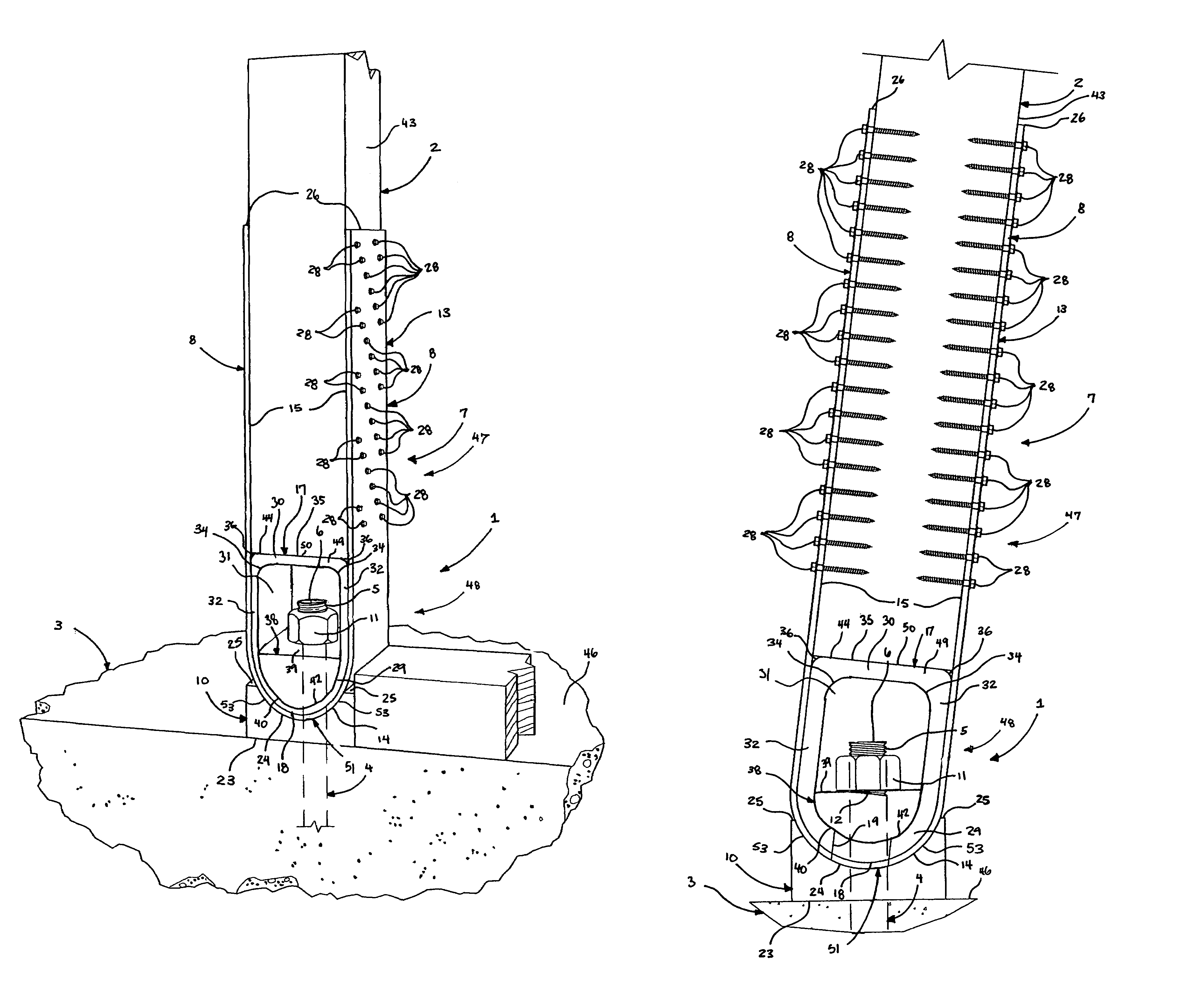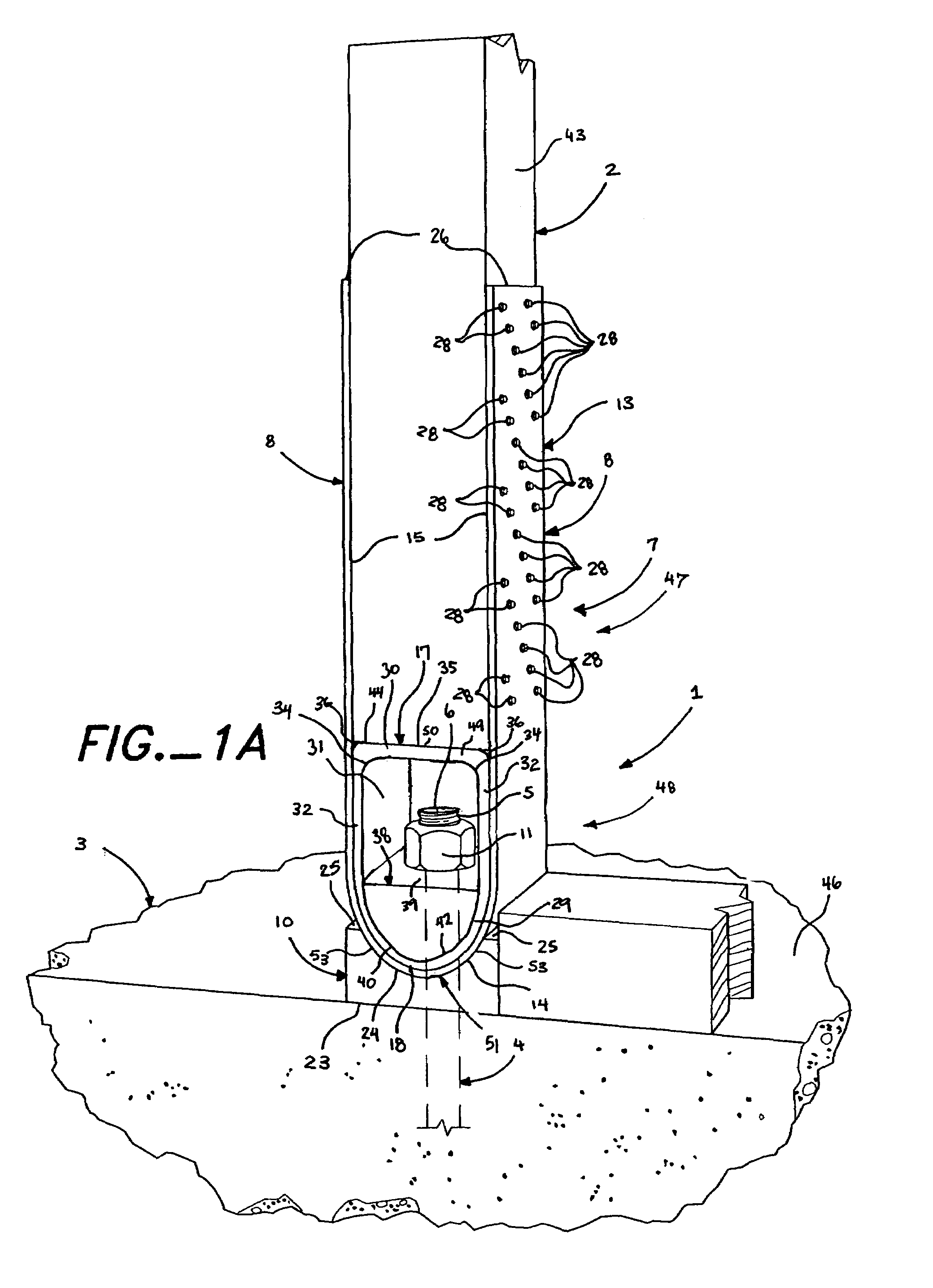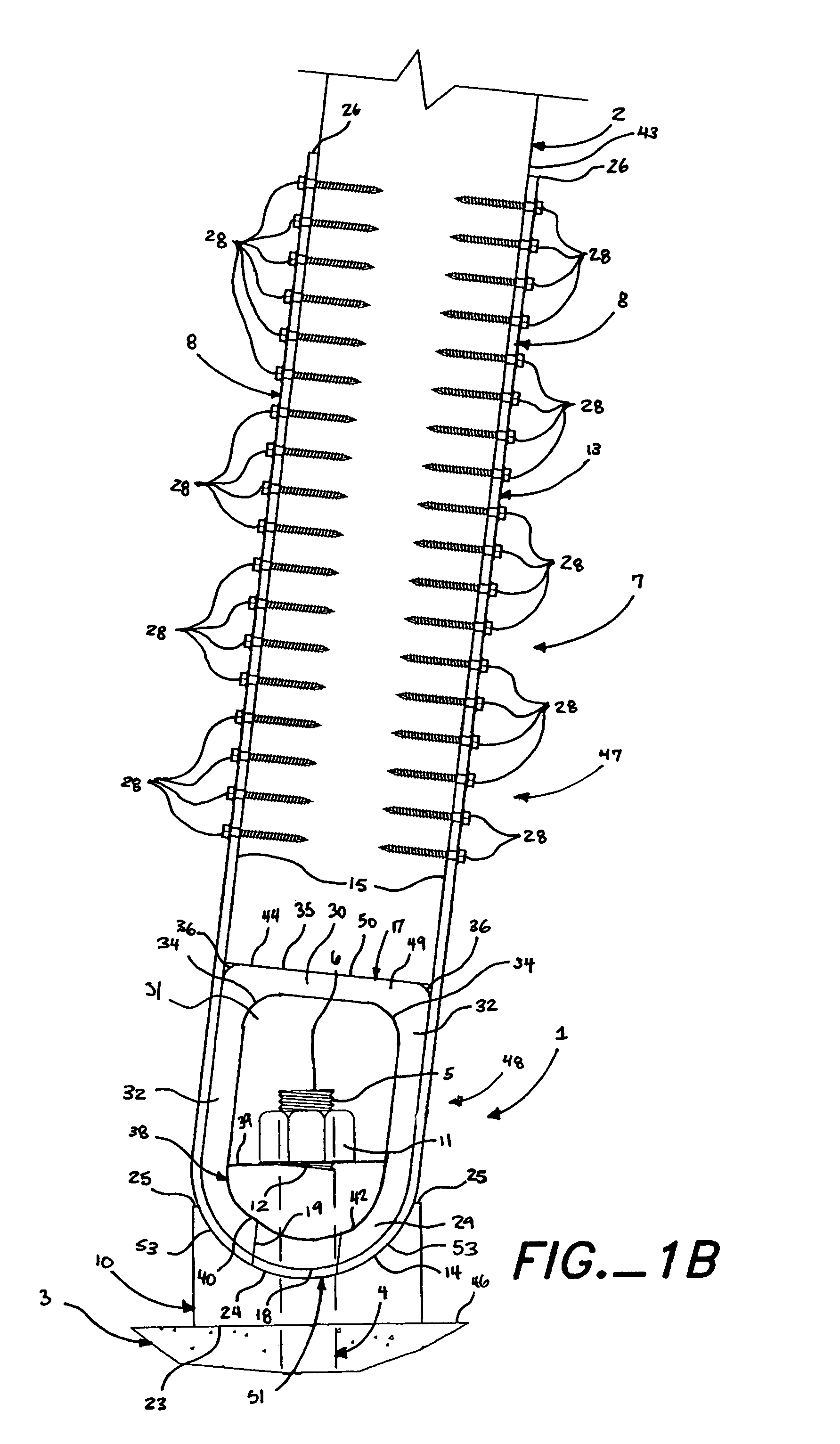Rotating concentric holdown
a concentric hold-down and rotation technology, applied in the direction of rod connection, shock-proofing, manufacturing tools, etc., can solve the problems of increasing non-uniform compression stress on the underlying structural member, structural failure, and heavy and costly production, and achieve the effect of rotating more smoothly
- Summary
- Abstract
- Description
- Claims
- Application Information
AI Technical Summary
Benefits of technology
Problems solved by technology
Method used
Image
Examples
Embodiment Construction
[0054]As shown in FIGS. 1A, 1B, 10 and 15A-19, the present invention is a building connection 1 including a first building structural member 2, a second building structural member 3, a first anchor member 4, and a connector 7 that receives the first end portion 5 of the first anchor member 4. As shown in FIGS. 1B, 10 and 15B, the connection 1 has an axis of rotation 12 and the axis of rotation 12 is below the first end 6 of the first anchor member 4.
[0055]The first building structural member 2 includes a first side face 43 and a bottom end 44, the bottom end 44 having a width 45, as shown in FIG. 19. The second building structural member 3 includes an upper surface 46 that supports the first building structural member 2. The first anchor member 4 is restrained by the second building structural member 3; the first anchor member 4 further includes a first end portion 5 extending from the second building structural member 3 and a first end 6.
[0056]The connector 7 includes an upper port...
PUM
 Login to View More
Login to View More Abstract
Description
Claims
Application Information
 Login to View More
Login to View More - R&D
- Intellectual Property
- Life Sciences
- Materials
- Tech Scout
- Unparalleled Data Quality
- Higher Quality Content
- 60% Fewer Hallucinations
Browse by: Latest US Patents, China's latest patents, Technical Efficacy Thesaurus, Application Domain, Technology Topic, Popular Technical Reports.
© 2025 PatSnap. All rights reserved.Legal|Privacy policy|Modern Slavery Act Transparency Statement|Sitemap|About US| Contact US: help@patsnap.com



